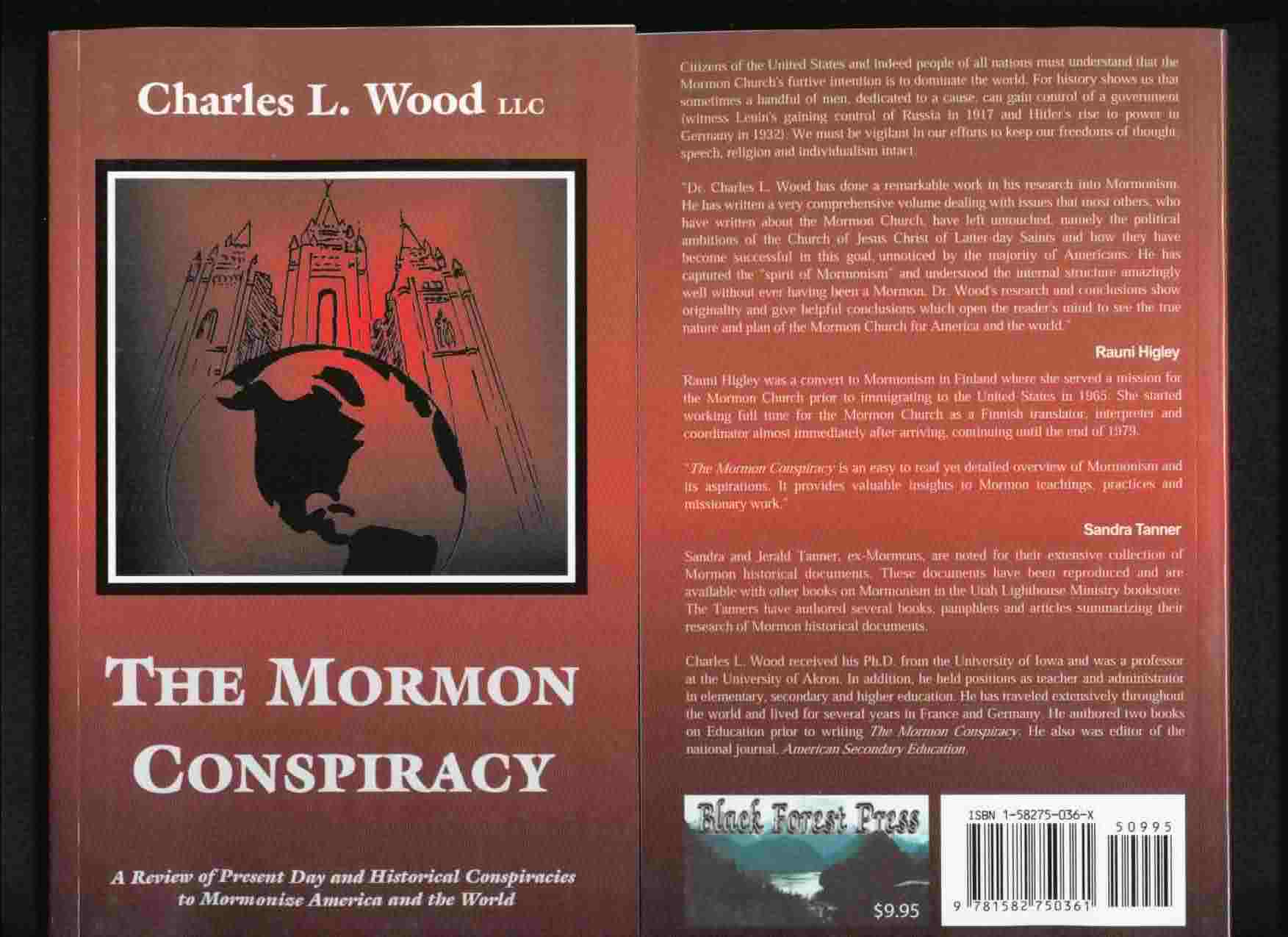 Mormonism ConspiracyMormonism From the very beginning, mormonism has been administered from the President on down. Mormonism was created by Joseph Smith at the age of 23. Through the use of the authority that he claimed he received from God, Joseph Smith was able to coerce Martin Harris into selling his farm to finance the printing of 5,000 copies of the Book of Mormon. Smith learned early that by claiming authority from God, he could make people accede to his wishes. Smith used this scare tactic not only for religious purposes but to obtain such personal pleasures as sex from attractive women.Learn more about Mormonism in the book The Mormon Conspiracy. Mormonism continued with Brigham Young. He claimed this same authority after he assumed the leadership of the Mormon Church and became President in 1847 three years after Smith’s death. During his reign as president of the Mormon church from 1847 until his death in 1877, Young exercised this authority to be sealed to seventy wives (although he cohabited with only about twenty seven) and realized vast amounts of property and wealth in Utah. When he wished to have something accomplished, such as developing a new settlement in another part of his Deseret State, he sent a call out to a church member whom he felt was qualified to do it. If the member wished to remain in good standing in the church, he accepted the call. While Young faced some restrictions placed upon him by federal authorities, generally he had control over his followers especially from 1847 to 1870, or until the federal government again turned its attention from the Civil War to problems in Utah. “In his [Young’s] time, the president of the church was virtually a law unto himself in Utah both in religious and worldly matters, for it was hard to find the line that divided them. Today the president is still completely powerful in religious matters, but his authority over the greatly expanded church is shared with his colleagues at the top. “ ...For many years it has been the custom of the Mormons to hold semi-annual conferences. At each of these it is the practice for the audience--once representing the majority of the Saints right there present in the Tabernacle, but now just a relative few who manage to get to Salt Lake City and find a seat--to vote to sustain the General Authorities. The hands shoot up automatically when the question is asked.
“...In fact, as the years have passed, it has become the most serious of religious crimes to question
the integrity or good faith or power of the General Authorities. Illustrative of this increasing
reliance on control by the General Authorities is the prominence given to one question among the
ten that a bishop is told to ask an applicant for a permit to visit the Temple. The first question is:
‘Are you morally clean and worthy to enter the Temple?’
The Second question:
‘Will you and do you sustain the General Authorities of the Church, and will you live in accordance
with the accepted rules and doctrines of the church?’

|